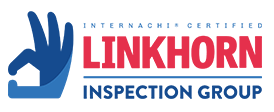While purchasing a commercial property in Ohio, you need more than a surface-level look of the building. You need clarity, confidence, and protection of your investment. That’s the reason a commercial property inspection is necessary in Ohio.
Unlike residential inspections, commercial inspections are broader in scope. These inspections are complex and tied to the financial future. Let’s take a look at the commercial inspections in Ohio.
What Types of Buildings Need a Commercial Inspection in Ohio?
All the commercial buildings might have different structures and functional components, but the common thing in all of them is the risk. That’s the reason a commercial property inspection should be conducted before buying, leasing, managing, or refinancing such buildings. In Ohio, the following buildings may need commercial inspections:
- Office Buildings
- Retail Stores and Strip Malls
- Industrial and Warehouse Facilities
- Multifamily Properties
- Hospitality Properties
- Medical and Dental Facility Buildings
- Education and Daycare Facilities
- Mixed-Use Buildings
Why Are Commercial Property Inspections Essential in Ohio?
Purchasing a commercial property without a proper inspection is just like purchasing a car without checking its engine. There can be major issues in the form of hidden liabilities. If there are outdated electrical systems, damaged HVAC units, or issues with the structural components of the building, it will cost you in expensive repairs. So, getting an inspection before making a deal is essential.
What is Covered in a Commercial Building Inspection?
The commercial inspection company can customize the scope of inspection according to the needs of the client. However, the general structure of a commercial building inspection includes the following:
Site and Grounds Inspection
The inspectors start from the outside of the building. The exterior environment of a commercial building tells a story of maintenance, drainage, and wear. The inspectors check
- Landscaping
- Parking lots and pavements
- Drainage system
- Sidewalks and curbs
- Exterior lighting
- Fencing or retaining walls
- Signage condition
The harsh weather in Ohio can wreak havoc on the exterior components of a building. If they are not maintained properly, they are likely to be problematic in the future.
Structural System
Structure is the backbone of a building. The inspection of the structural system of a commercial property includes:
- Foundation to check visible cracks or settling
- Condition of framing
- Load-bearing walls
- Roof supports
- Signs of instability
Roof System
The heavy snowfall and rain can make the roof conditions crucial. The evaluation of a roof includes checking:
- Roof covering material
- Drainage system
- Flashing and penetration points
- Roof-mounted equipment like HVAC and vents
The inspectors may use thermal imaging to detect moisture intrusion in the roof if requested.
Electrical System
Inspectors look for both safety compliance and operational conditions of the electrical system in a commercial building. This check consists of analyzing:
- Main electrical panels and breakers
- Wiring
- Grounding and bounding
- Outlet and switch function
- Emergency backup systems
Plumbing System
A thorough check of the plumbing system includes:
- Water supply lines and shutoffs
- Drainage and waste systems
- Water heaters and boilers
- Restroom fixtures and functionality
- Backflow prevention devices
In some cases, the inspectors may recommend having a sewer scope inspection after detecting something suspicious with the drainage system.
HVAC System
Heating and cooling systems in a commercial property are essential, not only for a comfortable environment, but for regulatory compliance, especially in medical facilities. The inspector evaluates:
- Condition and age of HVAC units
- Integrity of the ductwork
- Functionality of the thermostat
- Conditions of the filters
- Cooling tower or boiler setups (if present in the building)
Interior Elements
Inside a building, there are many things that need the inspector’s focus, like:
- Floors, walls, and ceilings
- Windows and doors
- Stairs and handrails
- Fire barriers and compartmentalization
- General cleanliness and maintenance
Life Safety and Fire Protection
The life safety systems in a commercial building are not just for compliance but for protecting lives. The inspector checks these things to make sure that they will be helpful in case of an emergency. Inspector reviews:
- Fire extinguishers
- Smoke detectors and fire alarms
- Fire sprinklers and suppression systems
- Emergency exits and lighting
- Egress windows and pathways
There are strict fire safety enforcement codes in Columbus, Ohio. Failing to meet them could mean fines or operational delays.
Accessibility Compliance
Accessibility laws under the Americans with Disabilities Act (ADA) require certain features in a commercial property. The inspector may check for:
- Ramp slopes and handrails
- Accessible restrooms
- Doorway clearances
- Signage (braille)
Environmental Hazards
Some properties may need environmental screening, which is separate from a standard commercial building inspection. The client can ask the commercial inspection company to check for potential environmental hazards like:
- Asbestos
- Lead-based paint
- Radon
- Underground storage tanks
- Contaminated soil or groundwater
Is it Time to Choose the Best Commercial Inspection Company in Columbus, Ohio?
Not all inspection companies are performing equally. You should always look for a commercial inspection company that is well-reputed and has a team of certified inspectors with years of experience. This way, you will get the most accurate commercial inspection reports, and it will help you to make an informed decision with your investment.
If it’s time to book a commercial property inspection, reach out to us and let us explain all our findings in a simple and easily understandable language about the property you are interested in.













